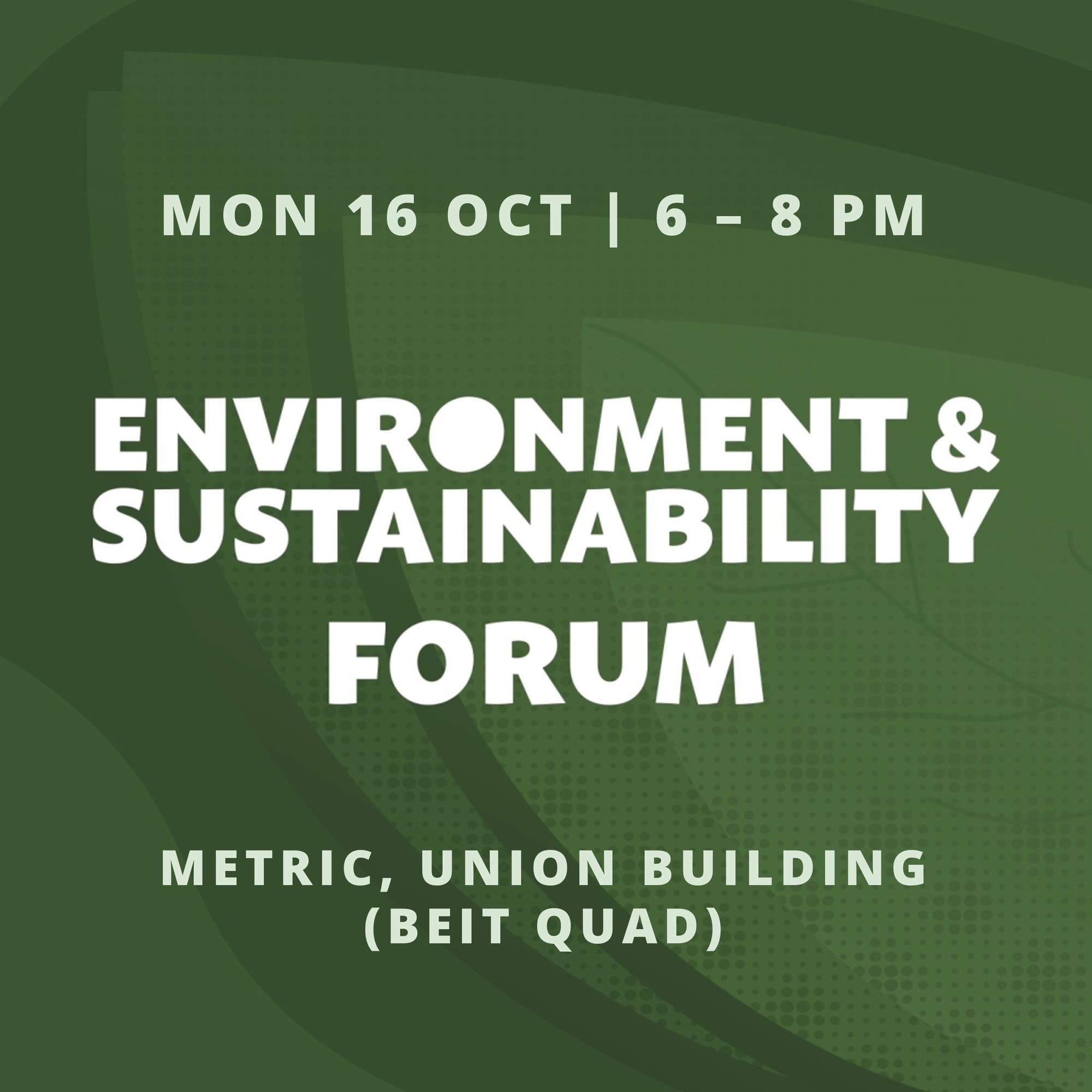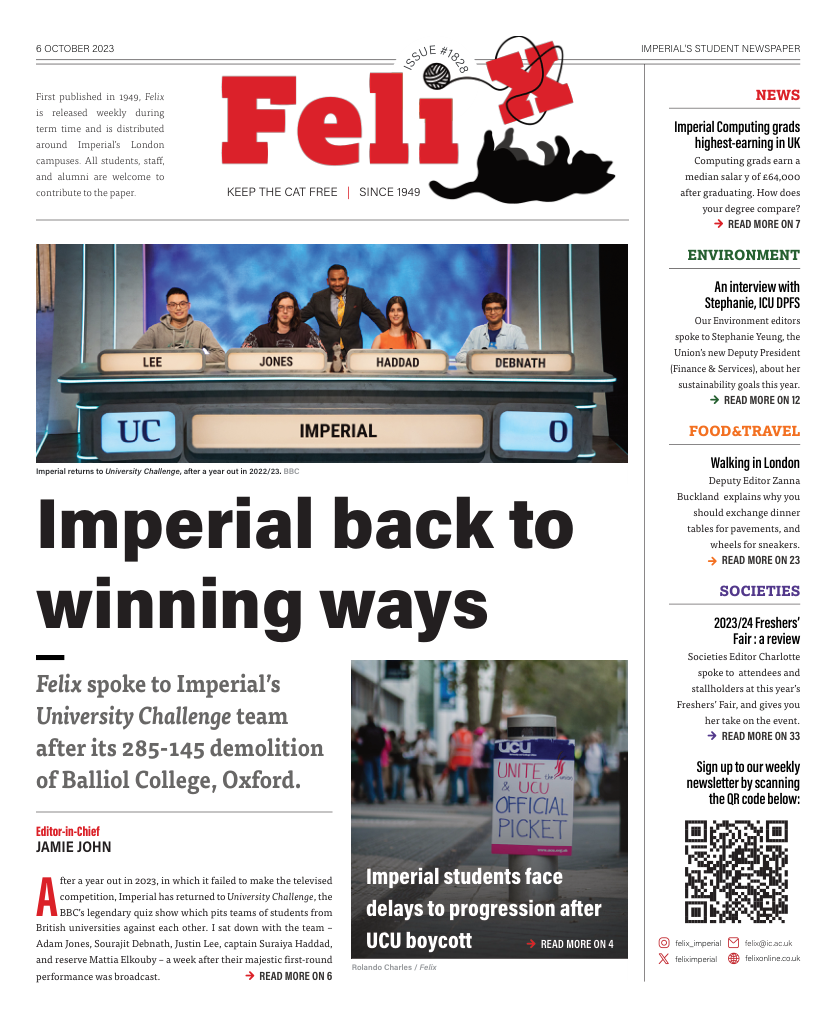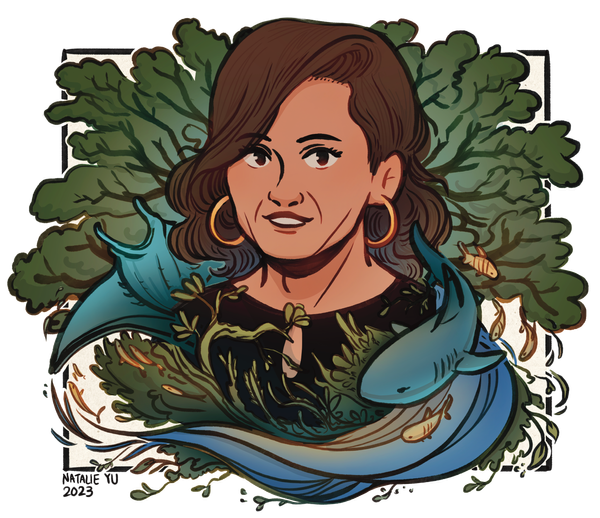Interview with Stephanie Yeung
Our environment editors sat down with Stephanie Yeung – Imperial College Union’s Deputy President.

Our environment editors sat down with Stephanie Yeung – Imperial College Union’s Deputy President (Finances & Services) – to give her the chance to introduce herself and discuss her sustainability goals for the academic year. This was what Stephanie had to say:
On why sustainability matters to her
Stephanie attributes her enthusiasm for sustainability to a science project she conducted when she was eight, where she first learned about global warming. “It started with household habits like turning off the lights”, she described, “and making sure we’re not [producing] waste where we don’t need to.” In her school years, she joined a competition and pitched for a “group that focused on beach cleanups and advocating for general plastic waste awareness” – which went on to receive some seed funding. At her second year at Imperial, she was the Ethics and Environment Officer, and despite this experience being during COVID times, she says it has “helped inform a lot of the things [she does] right now, with regards to sustainability.”
On the use of disposable plastic cups in the Union bars
Stephanie sees the use of disposable plastic cups in the Union bars as one of the most unsustainable practices at the Union. She explains that the Union uses plastic because “people get drunk and become more clumsy, and we don’t want glass shattering — it’s a health and safety risk.” However, she has been “looking into options and continuing discussions with [the] venues team to see whether we can transition into — even if it’s plastic — reusable options.”
On incentivising sustainable modes of transport
Stephanie highlights using trip policies to encourage more sustainable modes of transport. “Let’s say a society wants to go abroad to somewhere in France. Rather than flying, they can take the train,” she says. “Even if the Eurostar costs more, we would be willing to fund you to take the train. We want to make sure societies have the option to choose the more sustainable means of transportation where possible. We want to give incentives for CSPs and [give grants accordingly], [which would] make CSPs rethink the way they operate — I think a lot of it is a culture change."
On going digital
The union is going digital where they can. “This is one of the biggest moves we’ve had in marketing,” she explains. Rather than giving out stacks of [flyers], we’re trying to minimise this into QR codes so that people can access [information] on our website.”
On CSP sponsorships
Last year, Felix published an article revealing the vast sums of money fossil fuel companies give Imperial CSPs (Issue 1814). When asked about this, Stephanie commented: ”Unfortunately money is situated with those in power and a lot of [these companies] tend to not be as ethical or as environmentally friendly as they should be... namely [the fossil fuel giants] like Shell and Chevron”. On the first of August, Imperial’s board of trustees passed a new policy on the ‘Principles of Socially Responsible Engagement’. The aim of these principles is to ensure that any third-party relationships are consistent with the Union’s mission and values. “It’s about trying to move us into the direction such that we are only partnering with ethical and environmentally friendly corporations and businesses. We put a lot of money into our CSPs and we want to make sure that money goes to good places. [These principles were] passed very recently, so we are navigating how we’re going to encourage our CSPs to move away from these partnerships. If any society wants to [partner with these kinds of companies], there will be a more thorough [questioning process]: How does this benefit your members? How does it benefit the students? How does that outweigh [the negative environmental effects]? Ultimately, as a union, we want to ensure student benefit. There are some societies — such as chemical engineering and materials — that will be linked by nature [to these types of companies]. But they are also very open to this discussion — they were also involved [in] the formation of the principles. The [traction has been positive] overall, but [the principles are] still in the works.”

On sustainability initiatives at Imperial
When asked which sustainability initiatives at Imperial she’d like to highlight, Stephanie points us towards the series of environment-related societies and campaigns at Imperial. In particular, she highlights Imperial Climate Action, saying “[they have been] very active in terms of lobbying for change. They have been and continue to stay involved with us, and I think their voice has been seen. Having that collective voice there helps the College see that change is needed. It gives us the ammunition to demand change from the College.” A monthly sustainability forum is also in the works. “The forum is a place for students to share their thoughts, no matter how small”, Stephanie reveals. “It’s for me to have a direct channel with anyone who’s interested. For each forum, I’m hoping to set up a theme so that there’s a central topic to talk about. For the first one in October, I’m hoping to focus on the union’s plans, how [students] can get involved, [as well as] to get student feedback on these initial plans.” Future forums will be centered around COP28, the impact of climate change on health, climate anxiety, and more.
On her favourite animal
“I love elephants”, she smiles. “I have a picture of me and all my elephant soft toys – there’s at least 16 of them. I love them, and one in particular is very tattered. [Elephants are] such cute, benevolent creatures.”









